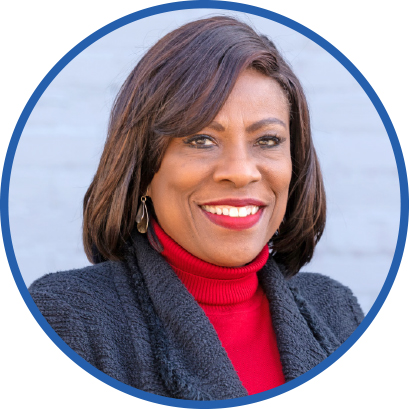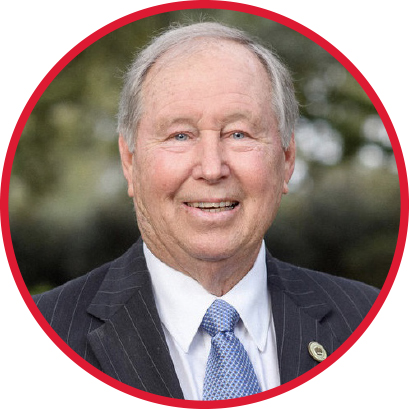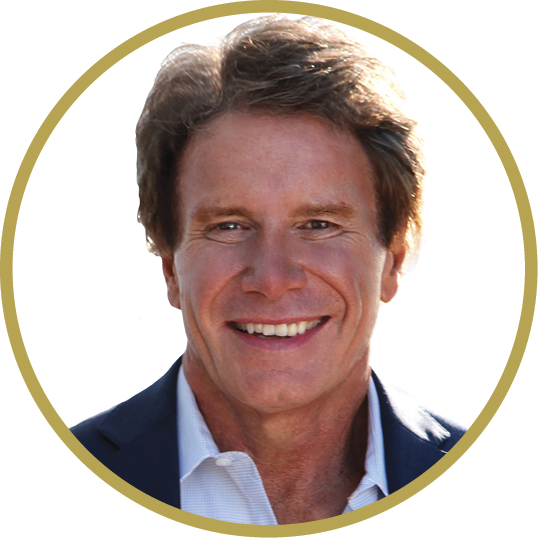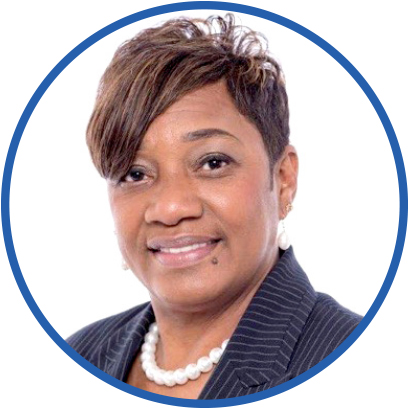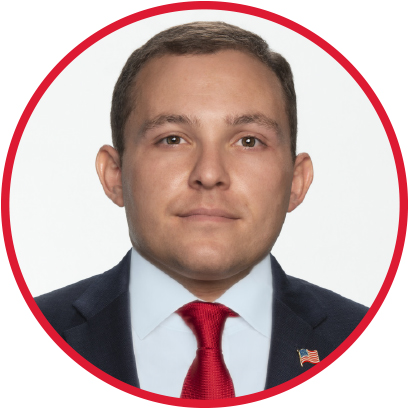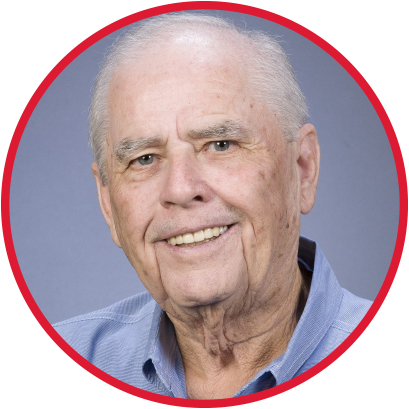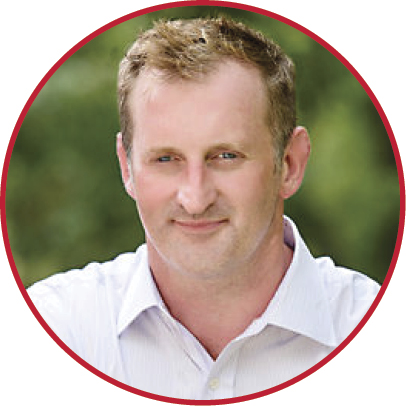
We asked the candidates for mayor to weigh in on local issues ahead of the Nov. 3 election
During this time of crisis in America, society needs strong leaders. On Nov. 3, Baton Rouge will vote on its next mayor to guide us through another season of the COVID-19 pandemic, a nationwide reckoning with social justice issues and our own unique challenges in East Baton Rouge Parish. Incumbent Sharon Weston Broome will face off against six other candidates running to keep Baton Rouge moving forward. Here are their answers to key issues facing the city-parish.
QUESTIONS
• What policies would you have put in place as the pandemic unfolded this spring and summer? What will you do if and when the health crisis continues in the fall?
• How do you plan to help local business owners and workers who have been affected by the COVID-19 shutdown get back on their feet?
|
|
• With the recent momentum in the Black Lives Matter movement and the push for police reforms to address racial discrimination, what would your approach be to create real equality in our city?
• Do you support the efforts to create the city of St. George? Why or why not?
• Do you see public transportation and alternative transportation infrastructure as a necessary investment for the city? What would you do to improve the current infrastructure?
• Baton Rouge’s murder rate decreased slightly last year but appears to be rising again in 2020. What steps would you take to reduce violent crime?
• How would you describe a “successful” term? What is your biggest priority?
CANDIDATES
SHARON WESTON BROOME
Democrat, incumbent mayor
On her pandemic response:
“We have excelled tremendously. East Baton Rouge was one of the first city-parishes in the nation to bring the health care community together to increase testing early on in this pandemic. Doing so enabled us to more adequately respond to the COVID-19 pandemic. But more than what any elected official has done in this pandemic, the people of East Baton Rouge have responded perfectly. We were forced to change our way of life almost overnight, but residents heeded our advice and did what was necessary to slow the spread of this virus. It’s my hope that we can continue to follow the guidelines before us to limit virus exposure until a vaccine is available. One thing we have learned from this pandemic is that it’s difficult to say with much certainty what two weeks or a month from now might look like, but one thing is certain: We will follow the science to determine what is best for our residents. Too often, politics has guided recovery for some areas of the country. We have risen above that in EBR, with the understanding that the more we listen to health experts, the sooner we can return to our way of life. Trust me, no one wants that more than me.”
On the COVID-19 shutdown:
“Reopening our economy to normal levels is one of my top priorities, but it must be done safely. Providing adequate support for not just our small businesses, but also their employees is going to take a team effort. All of our partners—local, state and federal—will need to join forces to make sure everyone has the support needed to return to work in as safe a manner as possible. I will work diligently with state officials, legislators and our congressional delegation to make sure resources are available to provide the support our local business owners need.”
On racial equality:
“Since the tragic death of Alton Sterling, our residents have been engaged in a community conversation about racial equality and responsible policing reforms that combine community involvement and public safety. Over the last 3.5 years, we have instituted a series of reforms that led to dramatically improved community relations and put the policies and recommendations needed into practice. This is an ongoing conversation that my administration will continue to lead into a second term. Most recently, I created the Commission on Racial Equity and Inclusion. Its agenda serves as a roadmap for the private and public sectors to create opportunities for increased community engagement, and to apply training, framing and other tools to continually improve outcomes related to race. I also commissioned the first-ever disparity study of city-parish contractors to lay the foundation for a Disadvantaged Business Enterprise Program. Such a program would create greater competition of city-parish contracts, which will benefit taxpayers. I have already implemented equity and inclusion standards in the MOVEBR transportation program. The $1 billion initiative is the largest infrastructure investment in the history of EBR, so it was important to ensure the greatest number of small businesses in our community can participate. To date, roughly one-third of contracts have been awarded to minority-owned, women-owned and
veteran-owned firms.”
On St. George:
“Unequivocally, no. Baton Rouge and the unincorporated regions of EBR are an interconnected community. We are connected through our culture, our economy and our community. The St. George effort is intended to further the existing divide. Not only will it negatively affect the residents of the city, but this separation will negatively impact the remainder of the parish, who had no say in the separation. It is not in the best interest of our community. No great adversity has ever been dealt with by running away from the issue at hand. The parish needs to stand united to solve our challenges, not run away from one another.”
On public transportation:
“There is no greater investment in our community than infrastructure. MOVEBR is bringing together officials and the business community to make critical investments across our city and parish thanks to the residents’ commitment to this cause. This project created a state-of-the-art traffic center, implements signal synchronization, invests in sidewalk projects and road improvements with minority business participation at record levels. Seventy road improvement projects will create 3,000 jobs across our city-parish at a savings of more than $255 million to the taxpayers.”
On reducing crime:
“When I took office in 2017, Baton Rouge was experiencing a significant spike in crime. Experts tell us the spike we experienced in 2017 was a direct result of the community upheaval caused by three traumatic events in summer 2016: The Great Flood, the ambush killing of three police officers, and the officer-involved killing of Alton Sterling. Since then, my administration has worked with the Baton Rouge Police Department to address the violence in our community, and as a result, we have seen decreases in crime over the last 3.5 years. Now in 2020, with the unprecedented economic and social upheaval caused by the coronavirus pandemic, we are seeing similar spikes in violent crime in Baton Rouge. To address the violence, we are implementing short-term solutions, but I recognize we cannot stop there. We have to center our focus on combating the root causes of crime to create a safer community. We must address the issues: gun safety and gun intervention, as well as the root causes of crime: poverty, mental health, access to transportation, education and health care. Short-term, the Baton Rouge Police Department has implemented Operation Safe Summer, which is using crime data to influence patrol patterns and the allocation of officers. We have taken a “boots on the ground” approach to address areas of concern. Violent crime will not diminish overnight, and I am in it for the long haul. Since 2017, I have worked with Chief Murphy Paul to address the systemic influences of crime by: hosting listening sessions for survivors of domestic and sexual violence, which has helped the BRPD improve response and prevention measures; partnering with the Louisiana Adverse Childhood Experiences Educator Program to provide childhood abuse and neglect training; commissioning the Baton Rouge Police Department Real Time Crime Center in 2018, using real-time data to patrol and respond to public safety concerns efficiently; and partnering with the National Shooting Sports Foundation to launch Project ChildSafe, which discusses gun safety and distributes free firearm safety kits.”
Defining a successful term:
“Defeating this COVID-19 pandemic is priority one. It’s important for our economy and the health of our citizens. Once we put this pandemic behind us, our recovery will take up significant time, but we cannot lose sight of the major priorities that were underway before COVID. We’ll continue to make investments in infrastructure through the MOVEBR program, make strides in our efforts to improve community policing, and to support our local businesses that drive our economy.”
STEVE CARTER
Republican, former state representative
On the pandemic response:
“I would have abided by best practices as provided by the CDC and state/local health officials to mitigate any risk of community spread, while accounting for the economic shortcomings that are associated with these practices. If the virus continues at its current level into the fall, we will need to reevaluate how and where our resources would be best fit to guarantee sufficient support for businesses and individuals in the Capitol Region. I believe increased testing would help greatly, and I will continue to advocate for rapid testing to be available for everyone in our city-parish.”
On the COVID-19 shutdown:
“I am making economic development a priority of my administration. For decades, we have seen comparable cities grow and thrive while we remain stagnant. Now has to be the time that we become a business-friendly community. I’ll work with our community leaders to help draft proposals that will allow them to reopen in our ‘new normal’ environment. I’ll advocate for additional support from our state and federal partners. I’ll work with the Metro Council to enact changes that allow businesses to open and succeed easier than today. I will work with higher education leaders to ensure we have a skilled workforce, and with our business groups to encourage innovative solutions. One-third of small businesses closed their doors before the Phase 1 reopening. Our future needs bold ideas, and I will champion them.”
On racial equality:
“I believe an increased access to economic opportunities can play a key role in reaching equality in both the city and the parish, but we cannot overlook how critical the human element is for fostering equality. There is the potential for ‘supersites’ in underserved communities, where we can combine local, state and federal resources to create industry hubs that will provide stable employment and foster generational wealth. I believe creating opportunities like this, as well as sitting down and having real conversations about race relations in our city, can help heal the divide.”
On St. George:
“The people of St. George have spoken. They followed the democratic process to a T, and any pushback on the incorporation shows a lack of respect for that same democratic process. I will serve as a mayor for all of East Baton Rouge Parish, and during my first week in office I will sit down with stakeholders from all parties involved to find a common good that we can collectively work toward.”
On public transportation:
“I believe that a city’s ability to be traversed easily is the hallmark of efficient government. I think we can make great strides in this area through projects like “First Mile/Last Mile” programs in conjunction with ride-sharing services. Within the first two years of my administration, the city-parish government will also be taking a lead role in the development of a new bridge and fixing traffic-light synchronization. Technology can help play a major role in helping our citizens move throughout the city, and I intend to fund such initiatives. And we will be transparent and hold ourselves accountable for the maintenance of our infrastructure—something that has not been a priority for many years in EBR.”
On reducing crime:
“I would like to implement changes that prioritize a reduction in homicides, as well as nonfatal shootings. Increasing the pay of our officers to at least the regional average and replacing our outdated and non-operational equipment would pay dividends in increasing officer morale and ensuring public safety. I will also ensure that the BRPD is trained in best practices for community policing.”
Defining a successful term:
“A ‘successful’ term would mean I’d created a safe, efficient and unified parish. One that can see past our surface-level differences and work together to help East Baton Rouge reach its potential. My No. 1 priority is reducing the violent crime that has plagued our city for far too long, and creating a parish where our citizens feel safe, regardless of which part of the parish they call home. I also hope to streamline government processes for our citizens and work with the Metro Council to become a business-friendly city-parish so everyone across our community has an opportunity to succeed. We must be a transparent, effective and efficient city hall so we can address the challenges around crime, traffic and economic development.”
“E. ERIC” GUIRARD
Independent, personal injury lawyer
On the pandemic response:
“My policies concerning the coronavirus pandemic would have treated all Americans as the free, independent adults that we are. If all the states had followed the lead of Sweden or states that never locked down, we could have avoided the calamity, heartache, other medical tragedies, economic loss and death caused by the lockdowns themselves and the subsequent collapse of an entire economy. At the same time, we should have emphasized protecting the most vulnerable—the elderly, especially those in nursing homes, and people with comorbidities or immune deficiencies. And even though our testing efforts have been the largest in the world, I would have pushed from the beginning an even bigger testing effort with rapid results. If the vast majority of folks were tested, we could have much more easily steered people into quarantines or treatments, and avoided the infection of others to a much greater degree. Finally, though admittedly controversial, the government should have made a hydroxychloroquine with azithromycin and zinc protocol available for free to anyone who voluntarily, under the guidance of their doctor, wanted to use the drug. The recent studies may be inconclusive, but what is conclusive is the safe use of this drug for 60-plus years for malaria, rheumatoid arthritis and lupus, plus the sometimes amazing result in early or preventive use around the world against the coronavirus. What we need more than anything is perspective. Approximately 7,500 people a day die in the United States for myriad reasons. But we don’t put our society on a lockdown, emergency footing and substantively change all our lives for any of those admitted tragedies. The percentage of people who will have serious problems from this disease is incredibly small. Protect the vulnerable, and let the vast majority of healthy people live like free Americans.”
On the COVID-19 shutdown:
“The best way is to make sure we completely reopen our economy. Most people and businesses do not want more handouts; they simply want to get back to work. And not under the random, scientifically questionable rules laid down by our governor and many other governors, but by allowing our businesses and workers to operate with common sense. I want to reduce any regulatory or taxing barriers that are preventing businesses and people to be as successful as possible. Free enterprise, capitalism and the ingenuity of our people make America great, not government rules and regulations.”
On racial equality:
“The best way to promote social and racial justice is to create a city atmosphere that is open, welcoming, entrepreneurial and enlightened. It starts with the schools, outlined in my Fund It, Don’t Run It program. A robust, entrepreneurial system of private schools servicing the entire school population will mix the races naturally, create harmony and give a future to those who did not have it before—all without government mandate.
As for police reform: Why do we have the Baton Rouge City Police and the East Baton Rouge Sheriff’s Office overlapping each other? Merge them into a new entity called the Guardian Rouge. No longer police or cops, they will be our guardians—well trained, well paid, well educated, physically fit and martial arts-trained. There will be more electronic traffic monitoring, so that the main interaction of the Guardian Rouge will not be for a traffic stop. We should also pay them at least as well as comparable U.S. forces, and pay them a bonus for living in the parish and in suspect neighborhoods to enhance community policing. And finally, they will publicize who commits crimes—pictures, names, addresses, where they went to school, and their parents. Parish residents need to take ownership of how we are raising our children, and we should all keep an eye out on those bad citizens who dare soil our house with crime.”
On St. George:
“I am adamantly against the efforts to create the city of St. George. While I understand the organizers’ frustration, I disagree with the solution. My campaign goal is to Fuse the Rouge, or join the parish together socially, racially, economically, etc. My Fund It, Don’t Run It educational program will allow children and parents to take an estimated $8,000 educational credit stipend and spend it on the school of their choice. Since the succession of St. George from Baton Rouge substantially affects all the citizens of the parish, everyone in the parish should have been allowed to vote. Had that been done, it would have failed easily. I want to see the city of Baton Rouge expanded to incorporate the rest of the parish, with the possible exception of Central, Zachary and Baker. But in the spirit of solidarity and togetherness of the parish, as mayor, I would reach out to the organizers of St. George, and ask them to give me an opportunity in my first term to address their concerns within the context of one city. I would ask that both sides agree to temporarily halt the ongoing litigation to see if their problems could be addressed, and I would welcome their participation in the inner circle of my city government.”
On public transportation:
“I would prefer to leave the current levels of parish support for public transportation, and first attempt to privatize it. The large buses currently used (which primarily appear to serve as billboards for endless obnoxious personal injury lawyers), are inefficient from an energy standpoint and for the number of riders serviced. Let the free enterprise, capitalistic system determine what system would be best—possibly moving to smaller, more fuel-efficient vehicles. Investing in alternative transportation, like trains or trolleys, would be years in the planning and construction, subject to the normal governmental overruns and creating a static system which begs for fluidity and innovation.”
On reducing crime:
“Violent crime could best be addressed by the creation of the Guardian Rouge with the merger of the Baton Rouge City Police and the East Baton Rouge Sheriff’s Department. The presence of small substations in the worst neighborhoods and Guardian Rouge officers living amongst at-risk people would be a visible change. The enhanced community policing, training and pay will make a more professional force that can win over the confidence of the people, especially in the crime-ridden areas. Everything in the makeup of the Guardian Rouge will create a trust and camaraderie with the citizens that will end the culture of “no snitching” and build pride in neighborhoods to where people are more closely watching out for each other. We have to find out where the bad kids are developing, so we can intervene much earlier. It seems simplistic, but there is no crime without criminals.”
Defining a successful term:
“The implementation of my five platform planks:
1. Establishment of the Fund It, Don’t Run It educational system.
2. Defeating the traffic problem with the Thousand Points of Fright campaign, enhanced driver’s license requirements and new tax on out-of-parish residents.
3. Establishment of the Guardian Rouge crime fighting force.
4. Enhanced business development with emphasis on entrepreneurs.
5. Community relations/quality of life enhancements with interracial, health and litter/blight eradication programs, and establishment of a central City Park.
But the biggest priority is establishing Fund It, Don’t Run It, where there will be no more publicly run schools, only publicly supported schools. There will be an explosion of educational entrepreneurism such that has never been seen before in the history of the United States. We will move from one of the lowest-performing counties in the country to one of the highest. This will take some time, legislature cooperation and possible constitutional amendments to implement. So in the meantime, let’s at least put cameras in every classroom, and finally let the public see firsthand what our tax dollars are paying for in the way of education.”
C. DENISE MARCELLE
Democrat, state representative
On the pandemic response:
“I would have assessed and listened to all of the experts’ advice. That’s most important. I can’t say enough about the health care industry and what they have to provide. We have to base all of the things we’re going to implement upon the facts they have given us.”
On the COVID-19 shutdown:
“We have provided funding from the state level from the CARES Act for businesses. That money is going to be hitting the ground soon. There were millions of dollars that were allocated not only for businesses, but there was a certain percentage of those dollars allocated for small, minority- and women-owned businesses. I made a motion that we include the veterans in those dollars. Those are some of the things that I’ve already done and we will continue to do to strengthen our economy.”
On racial equality:
“I believe that people have the right to protest, so I understand Black Lives Matter. I participated in some of the rallies that were peaceful protests. I would implement conversation opportunities between all parties. First, I would focus on communication between the community and police officers, as well as de-escalation policies and implementing true community policing where the police would know the community. It depends upon how police approach a certain situation and how it escalates or de-escalates. I think that has to be instrumental in strengthening relationships between the police and the community.”
On St. George:
“I believe that a city that’s together as one is always better unified. Initially, I was never on board to separate and establish St. George. I understood that a lot of their concerns were about the schools, and I would have addressed those concerns rather than separating the city. However, the voters have voted on St. George, and we will have to abide by the judge’s orders once ruled.”
On public transportation:
“I have always supported the rapid transportation between Baton Rouge and New Orleans, as well as the tax to promote transportation to get people to and from work. I believe there’s an opportunity for us to do more. We have to be innovative in the way that we are moving people around the city, so that we are not moving empty buses. It’s absolutely necessary that we have transportation for people throughout the parish. Any city that is going to be a great city has a great transportation system.”
On reducing crime:
“One of the things I have already initiated is a group of people who have been on the streets and are now reformed advocates for stopping the violence. They would meet to initiate new ideas and policies, so we could be in touch with what’s happening on the ground. I believe we need to hear from both sides, continue de-escalation policies, open a line of communication between our citizens and police, and there has to be a rebuilding of trust. I don’t believe there is a high level of trust right now. As it relates to the high murder rates in Baton Rouge, I think there’s a sense of hopelessness amongst our young people. We have to provide job training and education in order to get people off the streets. We have a lot of underlying issues in poverty that relate to crime. We have to address the underlying issues head on so we can ultimately change the crime happening in our city. It’s been done before and takes a lot of work. It takes the police working with the mayor’s office, the citizens of Baton Rouge, and the committees I’ve created, so we can come together to reduce crime. You will never have a city of this magnitude completely free of crime, but you can certainly reduce it.”
Defining a successful term:
“The 311 system in which citizens call in complaints has not been a successful program. I would like to look at the 311 system, how citizens access the office, and the response time and complaints. Let’s look at how we have people placed in positions in departments and maybe reorganize that. I definitely plan to address crime. I also want to continue providing funding for small and large businesses that have been hit by COVID-19.”
JORDAN PIAZZA
Republican, owner of Uncle Earl’s Bar
On the pandemic response:
“Protecting our most vulnerable must be a priority, but we should not have ordered businesses to close. We must encourage personal responsibility and not make businesses solely responsible for compliance. Also, we must have the foresight and aggressiveness to attract new businesses that can diversify our economy and stand up to disasters—particularly those in the medical, transportation and online sales industries, such as Amazon, Kodak Pharmaceuticals and Tesla Motors.”
On the COVID-19 shutdown:
“We must open the economy immediately and get our people back to work while also working with our federal delegation to provide resources for workforce development programs and access to working capital to help support our small businesses.”
On racial equality:
“I work in the private sector, and I believe opportunity helps all people. I want people to be working and not desperate or turning to a life of crime. Working and contributing to the betterment of our parish and community. We need to engage our citizens more and be open to regular discussions. That means holding events that are not fundraisers, ribbon cuttings or press conferences that seem to only happen in election years. We cannot wait for an incident for people to take to the streets. If it reaches that point, it is too late, and we have not done our jobs properly.”
On St. George:
“The residents of St. George have voted, and I plan on respecting the vote and working with our residents in the city of St. George. This issue should have been addressed over the last 15 years, and it is another example of a failure to address our education system within the parish.”
On public transportation:
“We simply cannot settle for repaving roads and fixing potholes as infrastructure improvements. We must build new infrastructure, such as a parish loop or a new Mississippi River bridge, in order to encourage new development throughout the parish. As for public transportation, we need to reevaluate our fixed-route ridership and investigate cost-effective methods, such as point-to-point on-demand transportation services.”
On reducing crime:
“I support our police to combat this rise in violent crime. This starts with providing competitive wages in order to attract qualified candidates and giving our current officers an immediate raise of $10,000. We need 100 patrol officers on the street, not behind a desk, and we need to properly utilize our crime center to craft policing policy and improve community policing.”
Defining a successful term:
“I have a slate of Day 1 goals I hope to prioritize, including reopening businesses and getting people back to work, building a new and diverse economy throughout the parish, approving a $10,000 raise for each BRPD officer and increasing the number of patrol officers on the street, crafting a three-year COVID recovery plan, and working to improve school performance and safety throughout the parish.”
FRANK SMITH III
Republican, business owner
On the pandemic response:
“We need to follow federal guidelines to beat this virus. The feds have the best experts in the world, and we should follow their advice until a cure is found.”
On the COVID-19 shutdown:
“Right now, most businesses and workers need financial help to have a chance. Our federal government likes to print money, so shut up about your politics, and send money.”
On racial equality:
“We need to stop judging our citizens by their gender, skin pigmentation, sexual status, religion, etc. Everyone should get a fair shake. Personally I live by the golden rule. I respect every man and woman who goes to work every day and takes responsibility for their lives. Our police are selected through a screening and are trained by the best available. Currently, we need more police protection, not less. If you disagree, then go and live in Melrose East for a week. Maybe we should stop making our police the bad guys and the bad guys the good guys. Call your local media and make that suggestion.”
On St. George:
“St. George is a by-product of a poorly run government and schools. Can you blame people for wanting their children to get a great education? Central has shown what can be done with less money and still have top schools in the state.”
On public transportation:
“Of course we need public transportation. We just don’t need full-size buses to carry three or four people. Let’s use smaller buses and perhaps add to the fleet for the convenience of our citizens. Our current infrastructure is in horrible condition. Until we can clean and repair our streets, gutters, curbs, drainage systems, etc., we cannot move forward. A clean city equals happy citizens.”
On reducing crime:
“Murder has been going on almost since the beginning of time. The murder rates will slow down when drug users stop buying and using and when people learn to control their tempers. We are so far down, we have to start over. Start with education and parents helping their kids learn. Let’s curb foul language. There are so many positive ideas available to help our kids become happy and productive citizens.”
Defining a successful term:
“We need to view city government as a business. A business that takes in money (taxes) and provides services. We need a professional and experienced city manager from out of town with no ties to Baton Rouge to run our business. We cannot vote someone in with no experience running a multimillion-dollar business. I want our city to be successful. I want all maintenance brought up to par. I want all of our cultures working together. I want big companies moving in with high paying jobs. I want Baton Rouge to have a reputation like Austin. Let’s all work together and make Baton Rouge great.”
MATTHEW “MATT” WATSON
Republican, Metro Council member
On the pandemic response:
“Our community deserves open, transparent and timely communication of accurate information from the governor and the mayor. At times that has been lacking. Well-meaning executive orders released by the governor should have been made public earlier. The Friday prior to when the first “stay at home order” was made public by the governor, I felt it would have been pertinent to inform our residents and business owners of this impending decision early enough so families could prepare and businesses could cancel deliveries of goods they would not be able to sell. Later, the other mayors in our parish found out about Baton Rouge’s mask mandate through Mayor Sharon Weston Broome’s press release, not through the appropriate sharing of information with mayor partners.
Going forward, accurate and continually updated information needs to be disseminated through every means possible, such as press releases, news updates, social media, etc. This will allow residents to make knowledgeable decisions. We accomplish this through proactive and continual communication with the top medical professionals at our local hospitals, state experts like Dr. Dan Godbee, and the Centers for Disease Control.”
On the COVID-19 shutdown:
“I will create an economic recovery department, which will keep abreast of all federal and state programs created to assist workers and businesses. This department will be a source of information and assist in filing applications to recovery programs. I will meet with small business owners and trade organizations to seek practical advice on implementing sound medical directives in order to increase workplace safety for both employees and customers. Health and safety is the utmost concern for everyone, but the economy is the engine that powers our community.”
On racial equality:
“I will ensure that the residents of long-neglected areas of our city-parish finally get the services they deserve. I will ensure that the areas most victimized by violent crime get the law enforcement protection they need in order to enjoy a safer life. I would begin an aggressive program to remove dangerous condemned properties that plague the economically hardest hit areas of our community. This will increase quality of life, reduce crime and risks to residents’ health, spark economic activity and create opportunities to add new affordable housing stock. I will deliver on commitments to all areas of our community through equitable spending on long-awaited solutions.”
On St. George:
“Throughout the movement to create the city of St. George I have played no favorites. My role as councilperson for District 11 is unique in that roughly half of the district is in the city of Baton Rouge and half in the area to become St. George.
How do we create the path forward? We determine the responsibilities that will remain unchanged, like federal and DOTD responsibilities, and those responsibilities that will always remain parish-wide. What then remains are municipal-level services and financial responsibilities not already negotiated or paid through existing ad valorem taxes, sales tax split and fees.
St. George is not leaving the parish. In fact, if we engage in these constructive conversations, the path forward will be beneficial to us all.
Whichever way you stand on St. George, you cannot deny that the law allowing the formation of municipalities exists. In this case, those laws were followed. We need to move forward and find an equitable outcome that will improve life across our parish.”
On public transportation:
“I am proud to have helped champion the passage of the EBR Parish Pedestrian and Bicycle Master Plan as it came up for vote at the Metro Council. The plan will be implemented over time, but we have to start somewhere. I am committed to increasing pedestrian and cyclist connectivity throughout our community. As proof, I promised to go three months without a car. In December 2019, I donated my Tahoe to WRKF. Navigating our community on bicycle, or on foot, has given me a much closer look at the dangers residents face moving through our community by means other than motorized transportation. With the stay-at-home order, I extended my commitment, now going into month seven. I want my children and every walker or cyclist to be as safe as possible.”
On reducing crime:
“In 2016, the number of homicides in our community was at a decade low. In the very first year of the current administration and under the watch of her hand-picked police chief, the homicide total rose to a gut-wrenching, all-time high. This year, our community is moving at a rate that sadly will see more people than ever lose their lives to violent crime. The hard-working men and women of every neighborhood across our community want the protection they deserve. Reducing the terrible level of violent crime in Baton Rouge will take a combined effort of the overwhelming number of residents who refuse to be victimized any longer and an administration that supports law enforcement.”
Defining a successful term:
“I’d take immediate action and work continuously on the following:
1. Clear, repair and expand our rainwater drainage system. Residents should not have to worry about flooding from a two-hour rain. After 2016, our parish should be as prepared as ever, yet flooding continues to worsen.
2. Reduce crime by supporting law enforcement and the vast number of residents across Baton Rouge and our parish who refuse to be victimized any longer.
3. Start an aggressive, proactive program to demolish condemned, dangerous buildings, especially in our most economically disenfranchised areas.
4. Move from the anti-business reputation that the current administration has unfairly placed on our community to a pro-business, pro-economic growth atmosphere, helping our community recover from the COVID economic shutdown.
5. Address the growing homelessness problem in our community.”
This article was originally published in the October 2020 issue of 225 Magazine.
|
|
|
